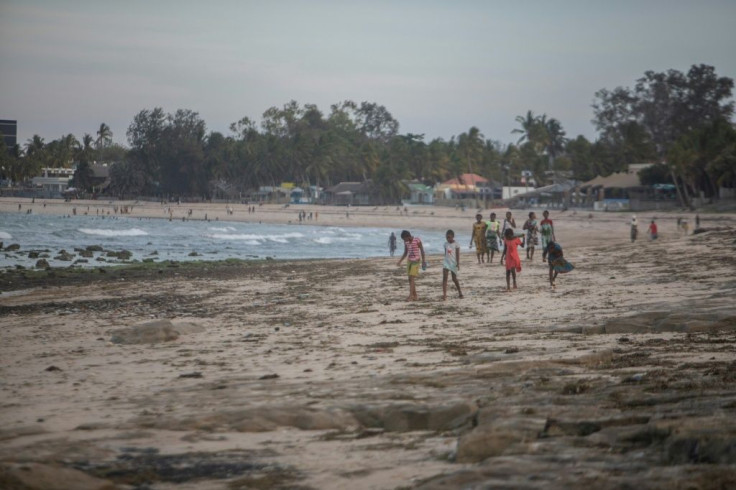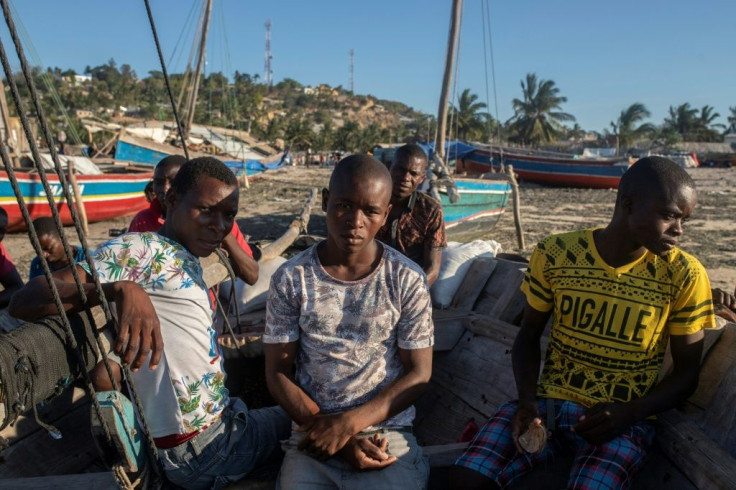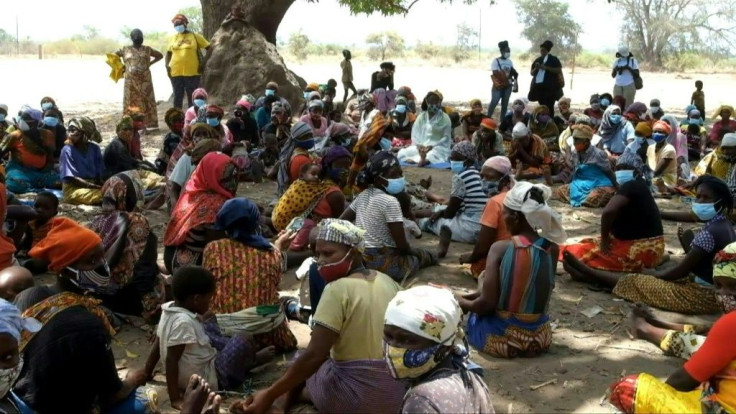Mozambique Jihadists Push Masses To Pemba
The population has soared in Pemba, a northern Mozambique port known for its wide bay, but rather than tourists coming for a swim, the newcomers have fled Islamic extremists.
In the past few months, boatloads of people with little but the clothes they wear have landed under the palm trees after their homes fell prey to Al-Shabab gunmen swearing allegiance to the Islamic State group (IS).
In October, the violent rebellion entered its fourth year and has reportedly killed more than 2,400 people and displaced half a million, according to the government.
Their villages were torched, many men killed and many young women kidnapped.
After seizing coastal zones that host natural gas installations, Islamist fighters have begun to push to the inland districts of Cabo Delgado province.

The last official census put Pemba's population at more than 205,000, while more than 130,000 displaced people are estimated to have arrived.
Local authorities are now struggling to provide basic social services, Mayor Florete Simba told AFP.
He deplored "pressure on water, health centres, sanitation and mobility and territorial planning".
Many refugees try to earn money by buying essential goods in bulk and selling them for a small profit, and a study is underway to determine how many displaced people have remained in Pemba.
The major described being faced with "a huge challenge" that required "diverting existing resources to support the displaced.

"For example, we had to allocate vehicles to transport the displaced people from Pemba to their respective camps" and mobile toilets had to be installed in an old part of town that lies near the shore.
On top of the infrastructure challenges, newcomers must be vetted given the risk that jihadists could be among them.
"We have had situations of criminality... especially small-scale theft," the mayor said.

"We have created a security committee, where we have our municipal police who, in coordination with the police of the Republic of Mozambique and local authorities track everyone who arrives."
In fact, a local resident told AFP: "On the beach, when the boats arrive, the police receive money" and let people through.
Physically at least, terrorists "are people like us, so they should search everyone who enters," the resident insisted.
Others say they have no choice but to take in entire families who really need support.
Sani Bernardo, 36, has lived in Pemba for 30 years and feels a moral duty to help those who land on the shore.
"I have a displaced family at home. I am not sure how many there are, but there are many," she told AFP.
"We received them despite the difficulties" such as insufficient food supplies.
"As human beings we receive them without discrimination."
Fulcane Saide, 25, works for a Pemba fishing company but was born and raised in Paquitequete, the neighbourhood where the beach is, now home to thousands of displaced people.
"Our parents are from these affected areas, so they are like family to us.
"We give shelter without fear because we are sure they need a place to stay. If they didn't, they wouldn't be here."
Suleimane Saide, 49, arrived three months ago and now works as a carpenter to feed his family, sculpting long fishing boats that line local beaches.
"They attacked my village and took my daughter. I came to Pemba and was welcomed by a family here," he told AFP.
"I still haven't forgotten what happened. I do not sleep. My head hurts. I think they should stop this war."
© Copyright AFP 2024. All rights reserved.





















